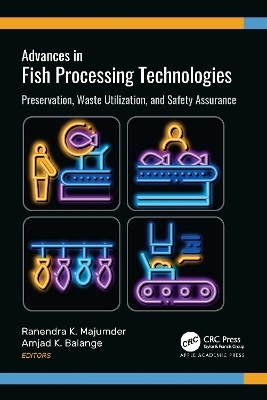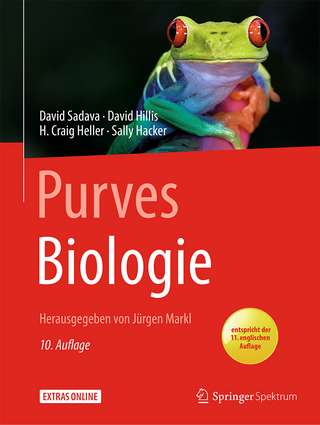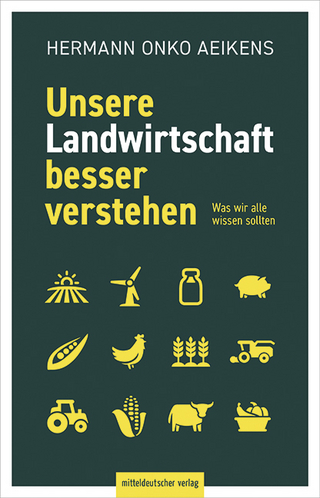
Advances in Fish Processing Technologies
Apple Academic Press Inc. (Verlag)
978-1-77491-107-5 (ISBN)
Fisheries in India and elsewhere are a very important economic activity with total fish production growing each year in response to increasing demand from consumers. With this growth, it is important for developing countries to take advantage of new advances in fish preservation, processing, and packaging technologies.
This new volume, Advances in Fish Processing Technologies: Preservation, Waste Utilization, and Safety Assurance, covers advances in fish processing technology, green technologies for extracting nutraceuticals, the role of endogenous enzymes in the quality of fish/shellfish and their products, disruptive technologies, and restructured product-based technologies. The chapters introduce improved techniques that are available for handling, transportation, product development, packaging, preservation, and storage of fish with the aim to present safe and convenient products to consumers. The volume also addresses technology to reduce undesirable changes in fish due to processing. The technologies discussed include high-pressure processing, irradiation, pulsed light technology, pulsed electric field, microwave processing, application of radio frequency, ultrasound, and more.
Topics such innovative methods for utilization of fish waste are discussed as well, and quality and safety aspects of fish and fish products are covered with reference to antimicrobial resistance bacteria and new developments in safety and quality management systems of fish and fish products.
This volume provides a wealth of information for graduate and postgraduate students of fisheries and food science. It will also be useful for food science professionals.
Ranendra K. Majumder, PhD, is Professor and Head of the Department of Fish Processing Technology and Engineering, College of Fisheries of Central Agricultural University (I), Lembucherra, Tripura, India. He has in total 23 years of experience in various academic capacities, including eight years as professor. He has expertise in the field of ethnic and traditional fish products of India and Bangladesh, fish biochemistry, fisheries waste management, and value addition of low-cost fish. He is also working in the field of entrepreneurship development of youths through value addition to fish. He has satisfactorily completed four externally funded research projects and nine university-funded research projects. Prof. Majumder is guiding three PhD. scholars and has already guided 19 master’s students for their theses. He has presented papers at several international and national seminars. During his academic and research life, he has publication in 35 international and 28 national journals, as well as 12 book chapters. He has developed several technologies, such as different value-added fish products, a low-cost solar tent dryer, and a consumer-friendly portable mini fish smoking kiln. Dr. Majumder’s keen interest in ethnic fermented fish products has given him an identity in the international arena, and he is presently working for development of standards as assigned by the Bureau of Indian Standards (BIS) and Food Safety and Standards Authority of India (FSSAI). Dr. Majumder earned his doctoral degree from the Central Institute of Fisheries Education (Deemed University), Mumbai, India. Amjad K. Balange, PhD, is Principal Scientist in the Department of Post-Harvest Technology of ICAR-Central Institute of Fisheries Education (Deemed University), Mumbai, Maharashtra, India, where he has been on the faculty for over eight years. He also worked in the capacities as Biochemist and Assistant Professor in the Fish Processing Technology Department of College of Fisheries, Ratnagiri, Maharashtra, India, giving him a total experience of over 21 years in teaching, research, and extension. Dr. Balange’s research and teaching interests revolve around fish processing technology and microbiology, with about 100 refereed journal publications in the areas of fish postharvest management, fish biochemistry, value addition of fish, and fish waste management. He has supervised the completion of 10 PhD and 15 master’s research programs and is a recipient of a fellowship for international PhD program from the Faculty of Agro-Industry, Prince of Songkla University, Thailand, with excellent doctorate thesis award for the academic year 2008.
PART I: ADVANCES IN FISH PRESERVATION, PROCESSING, AND PACKAGING TECHNOLOGIES 1. Advancement in Fish Processing Technology: The Indian Scenario 2. Surimi and Surimi-Based Products 3. Freezing of Fish and Fishery Products: Basics and Advancements 4. Emerging Fish Processing and Packaging Technologies: An Overview 5. Utilization of Low-Cost Fish through Restructured Product-Based Technologies 6. Hydrocolloids: Application in Fish Processing to Improve Mechanical and Functional Properties of Fish Products 7. Edible Packaging for Fish Preservation: Fundamentals and Applications 8. Disruptive Technologies: Its Scope in Seafood Processing and Traceability of Fish Products 9. Secondary Raw Material and Low-Cost Fish for Fish Meal Production and Its Implications in the Animal Feed Industry PART II: SEAFOOD COMPOSITION AND SCOPE OF DEVELOPING HIGH-VALUE PRODUCTS 10. Marine Fish Fatty Acids: Variation in Fatty Acid Profiles of Pelagic and Demersal Fishes 11. Endogenous Enzymes: Their Roles in Quality of Fish/Shellfish and Their Products 12. Green Technologies for Developing High-Value Novel Marine Nutraceuticals: Scope and Innovations PART III: UTILIZATION OF FISH PROCESSING WASTES 13. Fish Wastes: Present Status of Utilization and Scope of Valorization 14. Production of Omega-3 Capsules from Fish Offal: Recycling of Resources for Sustainable Production and Consumption 15. Bioactive and Functional Nutraceuticals from Shrimp Processing Wastes 16. Edible Packaging from Fishery Waste: A Future Prospective PART IV: EMERGING SEAFOOD SAFETY CONCERN AND QUALITY MANAGEMENT 17. Antimicrobial Resistant Bacteria: An Emerging Seafood Safety Concern 18. Emerging Pathogens of Public Health Significance Associated with Seafood 19. Understanding Food Safety in Fish and Fishery Products 20. Developments in Safety and Quality Management of Fish and Fishery Products PART V: ENTREPRENEURSHIP DEVELOPMENT IN THE FISH PROCESSING SECTOR 21. Entrepreneurship Initiatives in the Fisheries Post Harvest Sector Through the Agribusiness Incubation Program
| Erscheinungsdatum | 13.01.2023 |
|---|---|
| Zusatzinfo | 27 Tables, black and white; 9 Line drawings, color; 18 Line drawings, black and white; 11 Halftones, color; 24 Halftones, black and white; 20 Illustrations, color; 42 Illustrations, black and white |
| Verlagsort | Oakville |
| Sprache | englisch |
| Maße | 156 x 234 mm |
| Gewicht | 1174 g |
| Themenwelt | Naturwissenschaften ► Biologie |
| Weitere Fachgebiete ► Land- / Forstwirtschaft / Fischerei | |
| ISBN-10 | 1-77491-107-8 / 1774911078 |
| ISBN-13 | 978-1-77491-107-5 / 9781774911075 |
| Zustand | Neuware |
| Haben Sie eine Frage zum Produkt? |
aus dem Bereich


